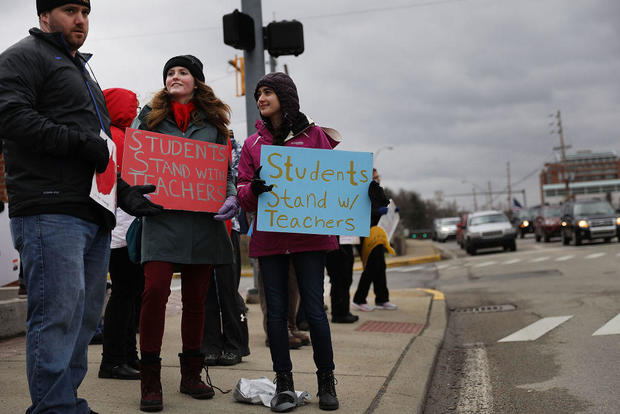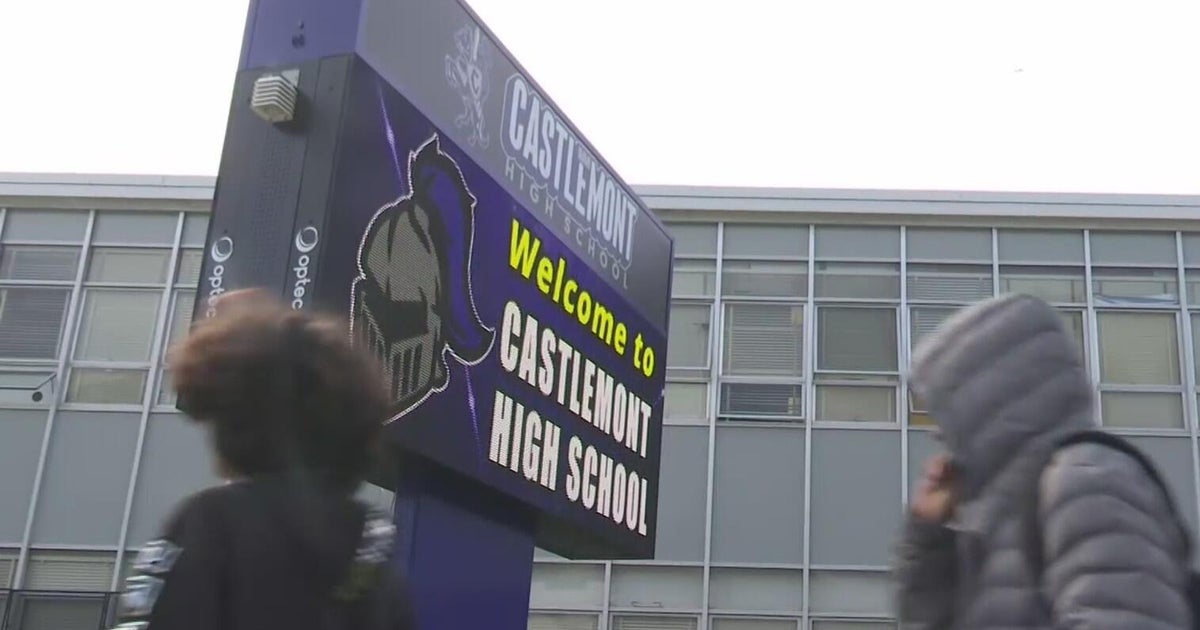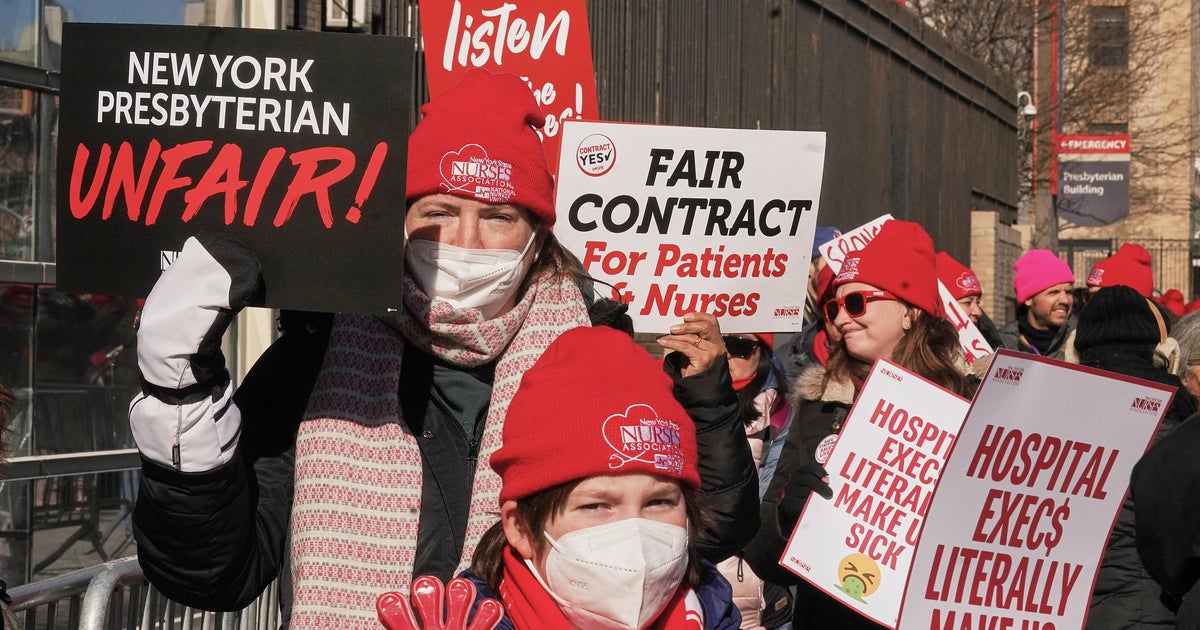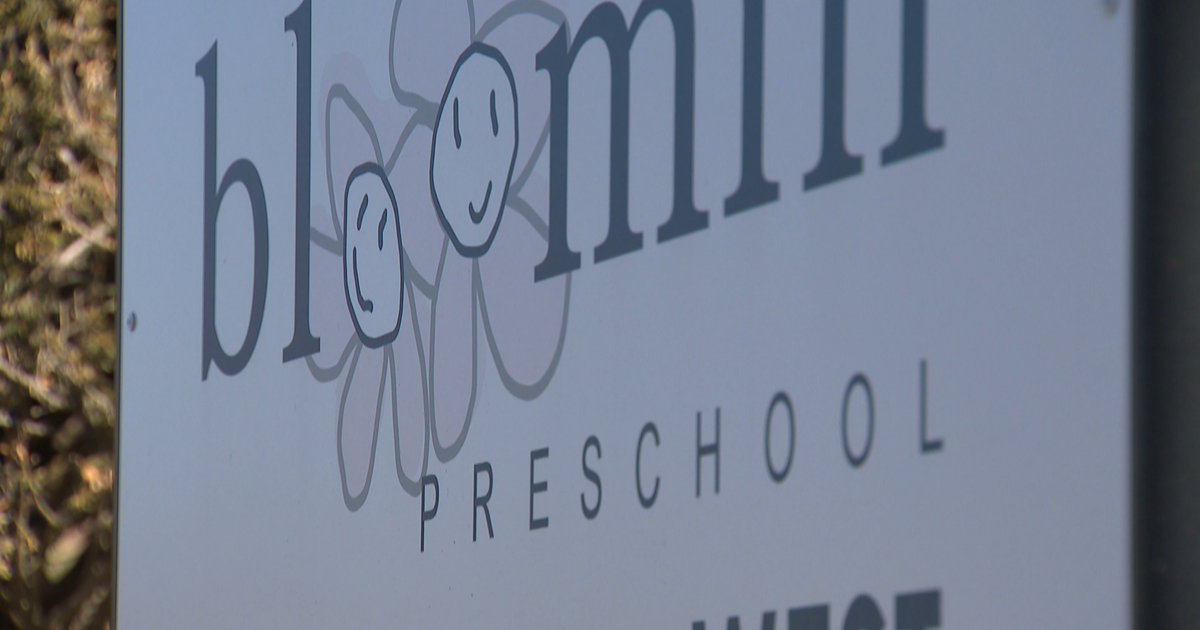West Virginia teachers: No pay raise, no school; strike goes on
Unions representing West Virginia teachers and service personnel say they will remain on strike after the state Senate voted to cut the 5 percent pay raise they had negotiated with the governor. A joint legislative committee has been formed to address differences in the pay raise bills of the state Senate and House.
In a joint statement Saturday, the American Federation of Teachers-West Virginia, West Virginia Education Association and the School Service Personnel Association said Senate President Mitch Carmichael and his leadership team had left them with no choice after they voted to reduce the raise to 4 percent.
The statement said all public schools in West Virginia would be closed again Monday "and remain closed until the Senate honors the agreement that was made." Teachers walked out of classrooms statewide starting Feb. 22.
"I take care of the bills in my family and knew I can't afford it, I can't. I have two children, I live paycheck to paycheck," Katie Endicott, a 31-year-old teacher from Gilbert, told The New York Times.
"When I realized that they were taking hundreds of dollars and then they tried to tell me they were giving me a pay raise of 1 percent, I knew I can't just sit back. I can't be complacent, something has to change," Endicott said.
The Republican-controlled Senate voted Saturday evening to approve the lower pay raise, bucking teachers, Republican Gov. Jim Justice and the Republican-controlled House, which approved the 5 percent raise Wednesday.
House members later Saturday wouldn't agree to the Senate's move, and the two bills will now have to be reconciled by a legislative conference committee.
House of Delegates spokesman Jared Hunt said Sunday no meeting had been scheduled yet of the conference committee. It wasn't yet clear when it would meet.
The committee will include Delegates Bill Anderson, R-Wood, and Brent Boggs, D-Braxton, and House Education Chairman Paul Espinosa, R-Jefferson; and Senate Majority Leader Ryan Ferns, R-Ohio, Senate Finance Chairman Craig Blair, R-Berkeley, and Sen. Robert Plymale, D-Wayne.
The Senate's vote came as the teachers' strike rolled into its second weekend. Republican Sen. Greg Boso of Nicholas introduced the amendment to lower the raise, which the full Senate adopted by a vote of 19-15.
Senate Republicans have repeatedly emphasized exercising restraint with state spending, while agreeing that teachers and West Virginia's other public workers are all underpaid.
"That compensation increase is long overdue," said Sen. Charles Trump, a Berkeley Springs Republican. "We've been able to do this without tax increases."
Approving a 4 percent raise, instead of the 5 percent hike, will save the state $17 million, Boso said.
Democratic lawmakers said their Republican counterparts should approve the deal the governor negotiated with union leaders for a 5 percent raise.
"We're all caught up in our egos," said Democratic Sen. Douglas Facemire of Sutton. He noted the impact of the impasse on students, including those who depend on schools for their meals. "For 1 percent we're going to let kids go hungry," he said.
Teachers are protesting pay that's among the lowest in the nation, rising health care costs and a previously approved 2 percent raise for next year after four years without any increase.
Justice told school superintendents gathered Friday at the Capitol that he believed the votes for the raise were there. One administrator noted the impasse is affecting 277,000 students and 35,000 employees.
Protesting teachers have argued that education in West Virginia -- where more than 700 classrooms lack fully certified full-time teachers -- needs to be a higher priority among politicians. Pay starts at about $33,000 a year, lower than in surrounding states.
Justice said in a statement Saturday night that his sole focus is "getting our children back to school. This wrangling needs to stop right now."




